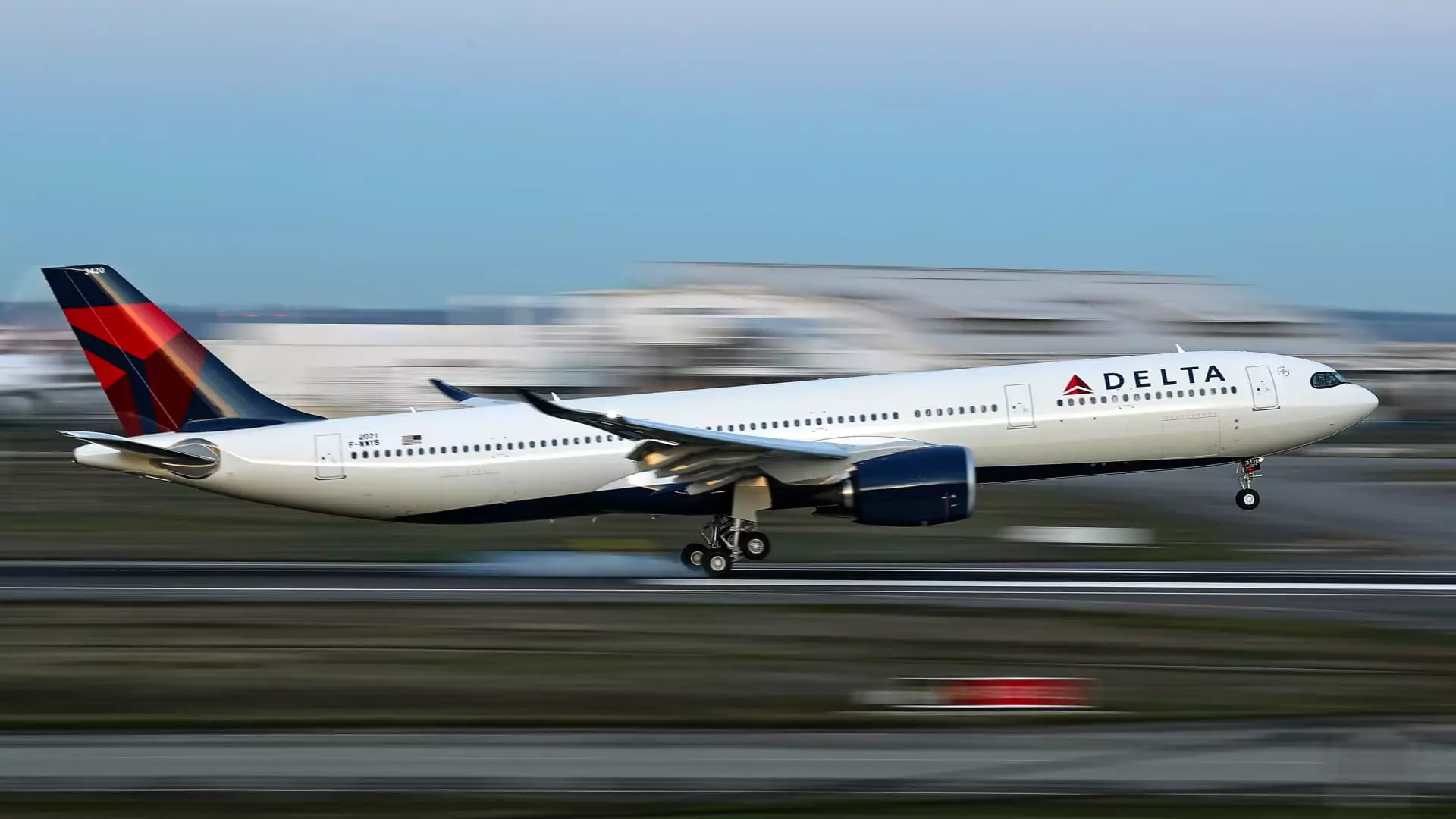Delta Air Lines recently announced a forecast of record revenue for the third quarter, attributing this to the high demand for summer travel. However, this projection was lower than what analysts had estimated due to fare discounts resulting from an increase in flights. In the current quarter, Delta anticipates a sales growth of up to 4%, falling short of the 5.8% predicted by analysts. Additionally, the airline forecasted adjusted earnings per share to be between $1.70 and $2, below the $2.05 per share estimated by analysts. The premarket trading saw a 9% decline in Delta’s shares, with other U.S. airlines also witnessing a decrease.
Competitive Environment
Delta Air Lines is considered the most profitable carrier in the U.S. airline industry. Its recent report suggests that competitors, especially those focusing on the oversaturated U.S. air travel market, may face challenges this summer. Rival United Airlines is striving to match Delta’s profitability by adding more premium seats to generate higher revenue. Despite the tough competition, analysts have given more buy ratings to Delta and United compared to other U.S. airlines.
Delta’s performance in the second quarter did not meet Wall Street’s expectations. The adjusted revenue of $15.4 billion was slightly lower than the estimated $15.45 billion. The net income dropped by almost 30% from the previous year, with operating expenses increasing by 10%. The CEO of Delta, Ed Bastian, acknowledged the impact of lower fare discounting in the domestic marketplace during this quarter. He mentioned that a reduction in industry capacity towards the end of the summer will align better with the demand.
The Transportation Security Administration reported that over 3 million travelers were screened at U.S. airports on a Sunday, indicating a surge in travel demand. Delta expects its flying capacity in the third quarter to grow by 5% to 6% compared to last year, at a slower pace than the previous quarter. Despite the increase in international travel revenue post-pandemic, airlines have expanded their schedules, intensifying competition for customers. Delta anticipates a decrease in unit revenue for trans-Atlantic flights due to the Summer Olympics in Paris, impacting earnings by approximately $100 million from June through August.
Delta reported a growth in premium ticket sales in the second quarter, with revenue from first-class tickets increasing by 10% to $5.6 billion. Revenue from coach tickets slightly rose by 0.3% to approximately $6.7 billion. The airline’s partnership with American Express, which brought in $1.9 billion, saw a 9% rise from last year. Despite industry overcapacity concerns, Delta remains optimistic about its full-year earnings forecast of $6 to $7 per share, with expected free cash flow of up to $4 billion.
Delta Air Lines’ revenue forecast and performance are indicative of the impact of travel demand on the airline industry. While facing challenges from competitors and pricing pressures, Delta’s focus on premium seating and revenue diversification strategies position it well for future growth and profitability. As the travel industry continues to evolve, adapting to changing consumer demands and market conditions will be crucial for airline companies like Delta to thrive in a competitive environment.

